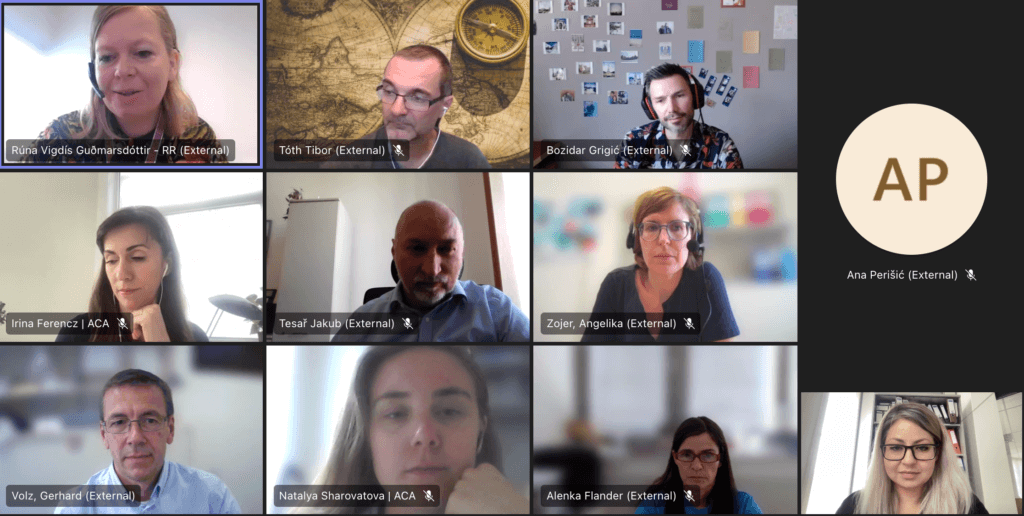Stay in the loop! Subscribe to our mailing list

What is the institutional impact of Erasmus+ staff mobility? How can it be achieved and amplified? What are the key enablers and barriers to this process?
These topical questions are raised in a new study conducted by the ACA Secretariat and six ACA members – AMEUP, CMEPIUS, DZS, OeAD and TPF, with Rannis acting as coordinator. Earlier in June, the partners held an online kick-off meeting to discuss the research objectives and the project timeline in 2022-2023.
While individual benefits of Erasmus+ staff mobility, such as the positive effects on personal and professional development or networking, are widely known and recognized by the higher education sector, its contribution to a broader institutional change has been underexplored so far. More evidence on possible impact areas and underlying institutional processes are necessary to tap more fully into the transformation potential of staff mobility.
ACA’s new research project is taking forward the findings of the previous exploratory study carried out with nine National Agencies for Erasmus+ between August 2020 – March 2021. This study compared Erasmus+ staff mobility trends in Austria, Croatia, Cyprus, the Czech Republic, Greece, Hungary, Iceland, Italy, and Slovenia for the period 2014-2019, based on information collected via the Participants Reports (EUSurvey) and Mobility Tool+. Overall, the study reported stronger impact on short-term and personal development as opposed to long-term or institutional impact in general (for more details, see ACA Newsletter – Education Europe, March 2021).
Based on a series of in-depth qualitative research tasks running until next summer, the partners will shed light on possible impact areas at the institutional level, extract best practice enabling such positive effects organisationally and make recommendations for the design and support of impact-oriented Erasmus+ staff mobility.
Higher education institutions from the six participating countries interested in more strategic, impact-driven approaches to Erasmus+ staff mobility will have ample room to participate in the new study. More information about opportunities for engagement will be published next month.